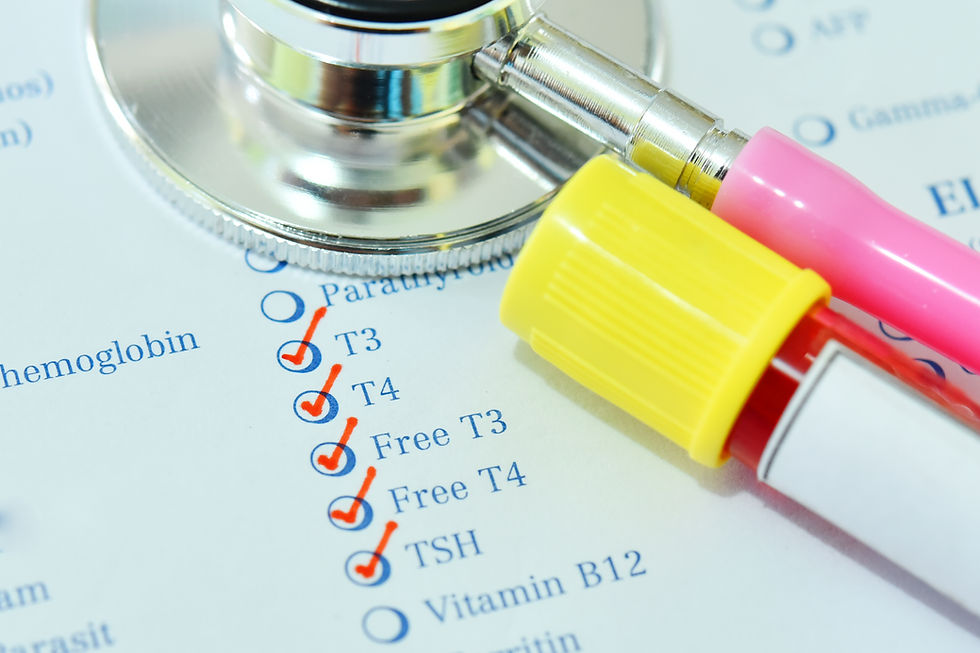Have you ever felt very fatigued during your days? Have you felt cold, weak and completely lost? Have you wondered what may be the actual cause of it...?
Well, let me tell you something about your thyroid hormones and the gland that produces them. It may be connected to what you're experiencing.
Thyroid hormones are two hormones produced and released by the thyroid gland. It is a butterfly-shaped endocrine organ. A thyroid gland sits and encloses around the trachea.

T3 and T4 thyroid hormones are tyrosine-based hormones that are responsible for the regulation of your metabolism, energy storage and expenditure, regulates your weight and mood and improves the function of your gastrointestinal tract.
In a healthy person, the thyroid produces 80% of T4 and 20% of T3. T3 is the active form of the hormone.
You may guess, that if T4 or T3 levels are not in range or if the production of T3 is not enough, it may affect the control of your body and so you start feeling pain.
It starts as fatigue or lethargy, you're sleeping more, you can't concentrate on daily tasks and you feel horrible.
Then, you may be feeling cold during your days, have an increased appetite and gain weight, which puts you in a very bad mood.
You're thinking "Am I depressed?" "Why do I feel like this?"
But trust me, bad mood or even depression is not your fault as it is most commonly secondary to the problem with your thyroid.
As we know, most of the hypothyroidism cases are due to primary hypothyroidism, which is a failure of the thyroid gland to produce thyroid hormones.
Hashimoto’s disease is the most common cause of primary hypothyroidism.
So tell me, have you ever had your T3 or T4 tested?
And if not, how can you do it?
Well, it's very simple. You can do this with blood tests for both hormones. The proper panel includes also test for TSH and reverse T3. TSH describes how the pituitary gland is working while reverse T3 helps us understand if the conversion of T4 to T3 is enough.
What are the proper values of these tests?

Normal Range of Lab results:
Serum thyrotropin TSH 0.5-5.5 uU/ml
Serum thyroxin T4 4.6-12 ug/dl
Serum Triiodothyronin T3 80-180 ng/dl
Reverse T3 FT3/rT3 10 to 24 ng/dL
*Remember that these values are range values. In order to obtain the best results remember to always consult your doctor as the optimal values may differ according to sex, age and your health condition.
Commentaires